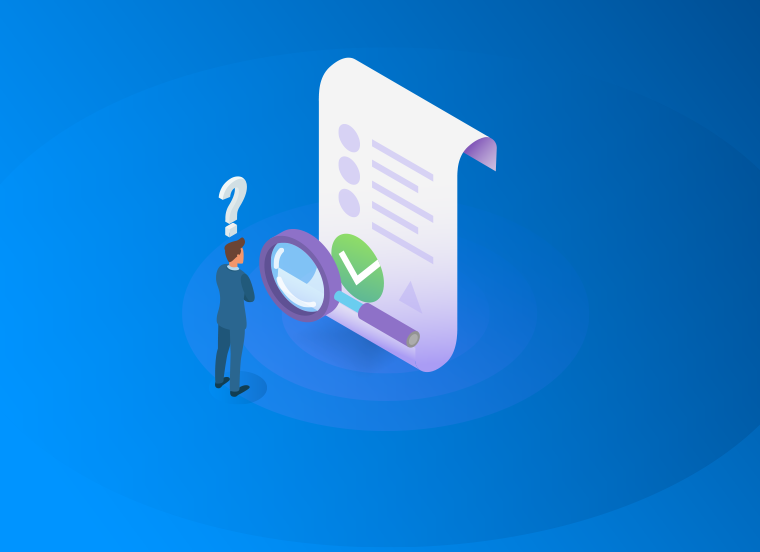Not so long ago, a qualified electronic signature, which, according to eIDAS (Regulation of the European Parliament and Council on electronic identification and trust services for electronic transactions in the internal market) is equivalent to a handwritten signature, was used sporadically in B2C or B2B contracts.
The main barrier was the fact that only few people (including company representatives) had a qualified electronic signature. Therefore the reason of not knowing electronic signature was prosaic. To obtain a qualified electronic signature, you had to contact institution issuing such a signature and meet a representative of this company in person to confirm your identity. Additionally, you had to pay a lot for obtaining this signature until recently.
What has changed?
First of all, you can get such a signature within a few minutes without leaving your home! Therefore, even if suddenly in the middle of the night it turns out that you need a qualified electronic signature at this moment, you can get it.
Moreover, its price does not scare you off and for one-time use you can even get it for free.
How is it possible?
Firstly, there are solutions that allow the use of a qualified electronic signature without the need to use an additional reader and card, which not a long time ago were necessary in this process. Now you do not have to receive a qualified signature of any physical devices from the supplier.
Secondly, you can confirm your identity electronically. In Poland, using MojeID. Thus, there is no need to contact a representative of the qualified signature supplier in person.
What does it mean?
Finally, we can conclude full-fledged contracts remotely, without personal contact between the parties involve in the contract. The COVID-19 pandemic has proven this form of contracting to be essential if companies want to sell products actively nowadays.

Imagine that while sitting in your armchair in the evening, sipping aromatic tea, you choose a car online and buy it for cash or loan via the Internet. The next day someone delivers the car to your door and gives you the keys to your brand new car? Comfortably? I like this vision.
Such solution is available as part of the Softax Sales Front Office platform.
The Australian Banking Association, delighted with the effectiveness of remote emergency processes used in Australia during the lockdown, appealed to the Australian government to become permanent solutions for mortgage loans, especially remote contracts to facilitate transactions, minimize costs and reduce problems of "personal" signatures and paper documents.
How to get a qualified electronic signature?
A qualified electronic signature can only be purchased from a qualified trust service provider, that is, companies that have a relevant certificate. There are over 200 such entities on the European market. The list is here.
In Poland, we have 27 such suppliers. A full list of them is available on the website of the National Certification Center (NCCert).
A qualified electronic signature is branded by qualified certificate issued by one of European Union (EU) countries is valid in all EU countries.
A qualified electronic signature service in Poland is provided by KIR only. More information about this solution can be found here.
To obtain a Polish qualified mSzafir electronic signature remotely, it is necessary to confirm your identity. In Poland, you can do it through MojeID, i.e. by confirming your identity via electronic banking. The process only takes a few minutes.
At the end, unfortunately, you still have to pay. If you pay on-line, you will receive the qualified electronic signature right away. In Poland the cost of a qualified electronic signature issued for 2 years is approximately PLN 300 gross. Sporadically, some banks offer promotions, e.g. PKO BP until June 2020 gave a 30% discount on mSzafir.
How to sign a contract using a qualified electronic signature?
Signing the contract with a qualified electronic signature is very easy. A document received electronically (e.g. by e-mail or in a mobile application) should be saved on the computer disk, then you have to log in to the application that supports your qualified electronic signature and attach the document that you want to sign there.
Finally, you accept the enclosed document, usually confirming using an additional code generated in the application of the supplier of the qualified electronic signature and provided to you through another communication channel (e.g. in a mobile application). It may sound a bit complicated, but in practice the solution is intuitive and easy to follow.
After signing the document with a qualified electronic signature, you save it on your hard drive and deliver via electronic channel to the addressee. And that’s all. Simple, right?
The above process can be facilitated by automatically opening the application for a qualified signature and bypassing the need to save the document on the computer disk.

How to check if the contract was signed with a qualified electronic signature and by whom?
Who signed the contract and whether it was surely signed with a qualified signature can be verified by several methods:
Verification of a qualified electronic signature confirms the validity of this signature. As part of the verification process, the following are primarily checked:
- whether the qualified certificate was issued by a qualified trust service provider and was valid at the time of signing;
- whether the signature validation data corresponds to the data provided to the relying party;
- whether the unique set of data representing the signatory included in the certificate was properly delivered to the relying party;
- whether the electronic signature was created by a qualified electronic signature creation device;
- that the integrity of the signed data has not been compromised.
So where does the resistance lie that remote contracting is not widely available?
It seems that the "dark sides" of remote contracting are difficult to find at present. A qualified electronic signature is equivalent to a handwritten signature, it can be obtained in a few minutes without leaving home, the cost of the service seems to be at a level acceptable to many people.
Perhaps the main limitation is the qualified electronic signature has not yet became a popular way of signing contracts by financial institutions and entities selling products and services?
Still relatively few banks, insurance companies, investment houses or leasing companies use the remote form of concluding contracts with clients. Maybe it's time to change it?
If you need already working solution - feel free to contact us, we will be happy to help you!